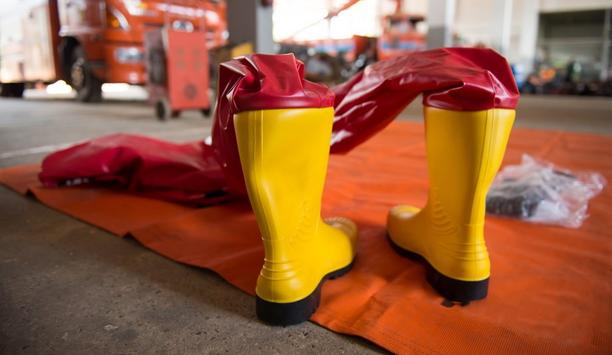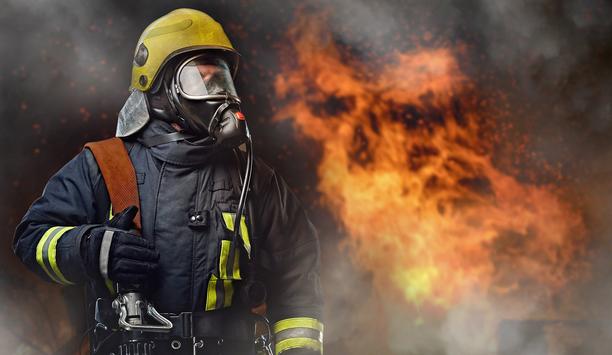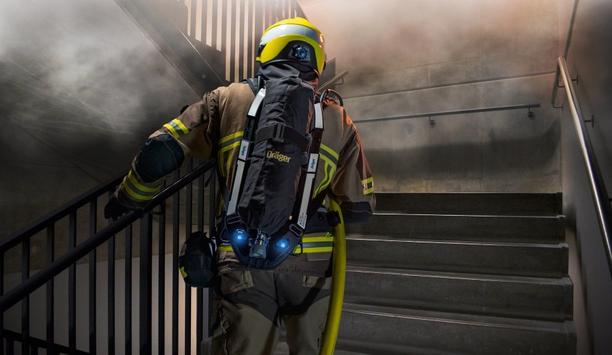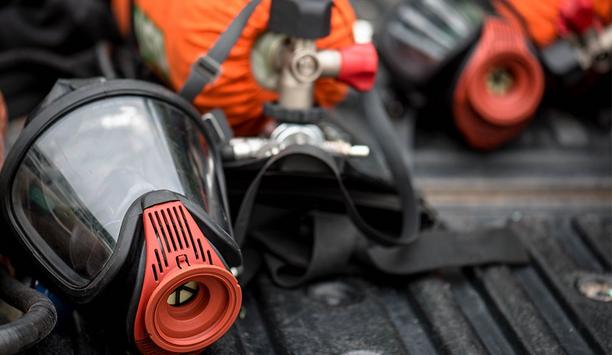Carbon monoxide (CO), also known as the ‘silent killer’, is especially dangerous because it is not visible and cannot be smelt or tasted. The only way to protect against this potentially deadly threat is with a CO alarm.
In honor of CO Awareness Month in November, First Alert and the National Volunteer Fire Council (NVFC) have partnered to create an online CO awareness and CO alarm training course for volunteer fire departments nationwide, supplemented by an alarm donation program for communities in need.
Online CO awareness and CO alarm training course
Aptly called the ‘Protect against the Silent Killer’ training program, the course virtually trains fire department personnel about the prevalence and symptoms of CO poisoning and proper CO alarm installation to help reduce the risk of CO suffocation incidents and deaths in communities across the country. According to the Centers for Disease Control and Prevention (CDC), approximately 50,000 people in the U.S. visit the emergency room each year due to accidental CO poisoning and 4,000 are hospitalized.
Awareness of CO poisoning is coming at a crucial time as winter approaches
Awareness of CO poisoning is coming at a crucial time as winter approaches. According to the CDC, two-fifths of CO exposure occurs during December, January and February. While almost all homes have at least one smoke alarm, only two out of five households said that they have a working CO alarm, according to the American Housing Survey.
Installing CO alarms on each level of the home
Current National Fire Protection Association (NFPA) guidelines recommend installing CO alarms on each level of the home, including the basement, and near every sleeping area.
“Installing and properly maintaining CO alarms is the best way to keep your family protected against this potentially deadly threat,” said Tarsila Wey, Director of Marketing for First Alert, the most trusted brand in fire safety, adding, “We are proud to play a role in helping firefighters and communities expand their knowledge about CO poisoning and are glad that our educational tools directly impact their community risk reduction efforts.”
Information on proper installation of CO alarms
As temperatures begin to drop and people continue to spend more time at home, it is crucial that CO alarms are installed throughout the home and that everyone is aware of the signs of CO poisoning. The training provides insight about how CO is created, the dangers it presents, and the symptoms and risk factors of CO poisoning.
The course offers detailed information on proper installation of CO alarms, appropriate in-home placement and maintenance. Presenters also emphasize the importance of alarm and battery replacement and discuss the various types of CO alarms.
Complimentary First Alert CO alarms
Students will receive the donated alarms in 2021 for distribution within their communities
To complement the training, the first 20 students, who are associated with a fire or emergency medical service (EMS) department, to complete this course are eligible to apply for 25 complimentary First Alert CO alarms. Students will receive the donated alarms in 2021 for distribution within their communities to enhance the safety of their neighbors.
“We value the dedication of all the firefighters and EMS providers who work tirelessly to keep their communities safe from the threats of CO,” said the National Volunteer Fire Council (NVFC) Chair, Steve Hirsch.
Steve adds, “Having access to this comprehensive training, along with First Alert’s generous alarm donation, helps to keep fire departments up-to-date on best practices and better equips them to educate their communities.”






